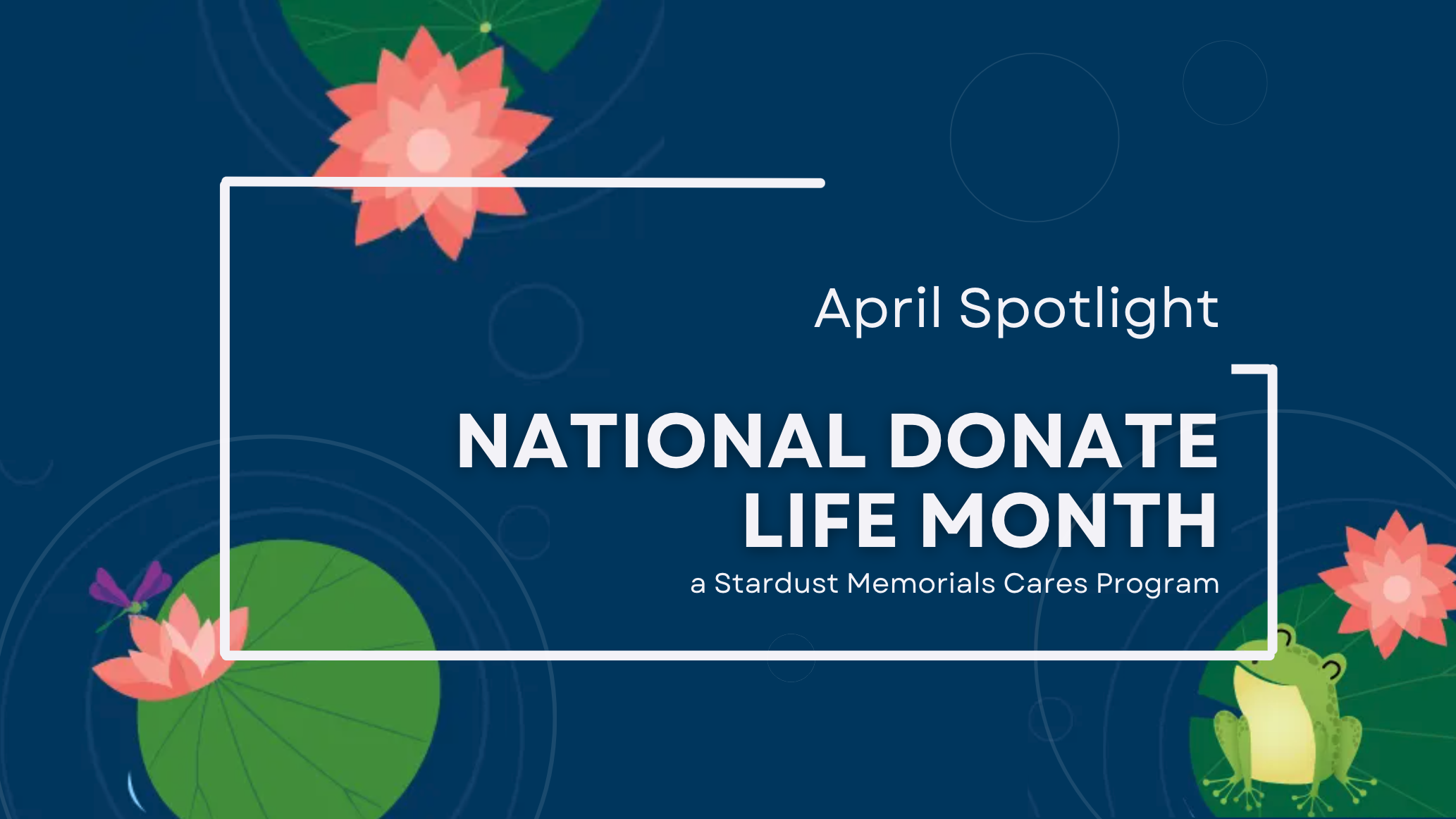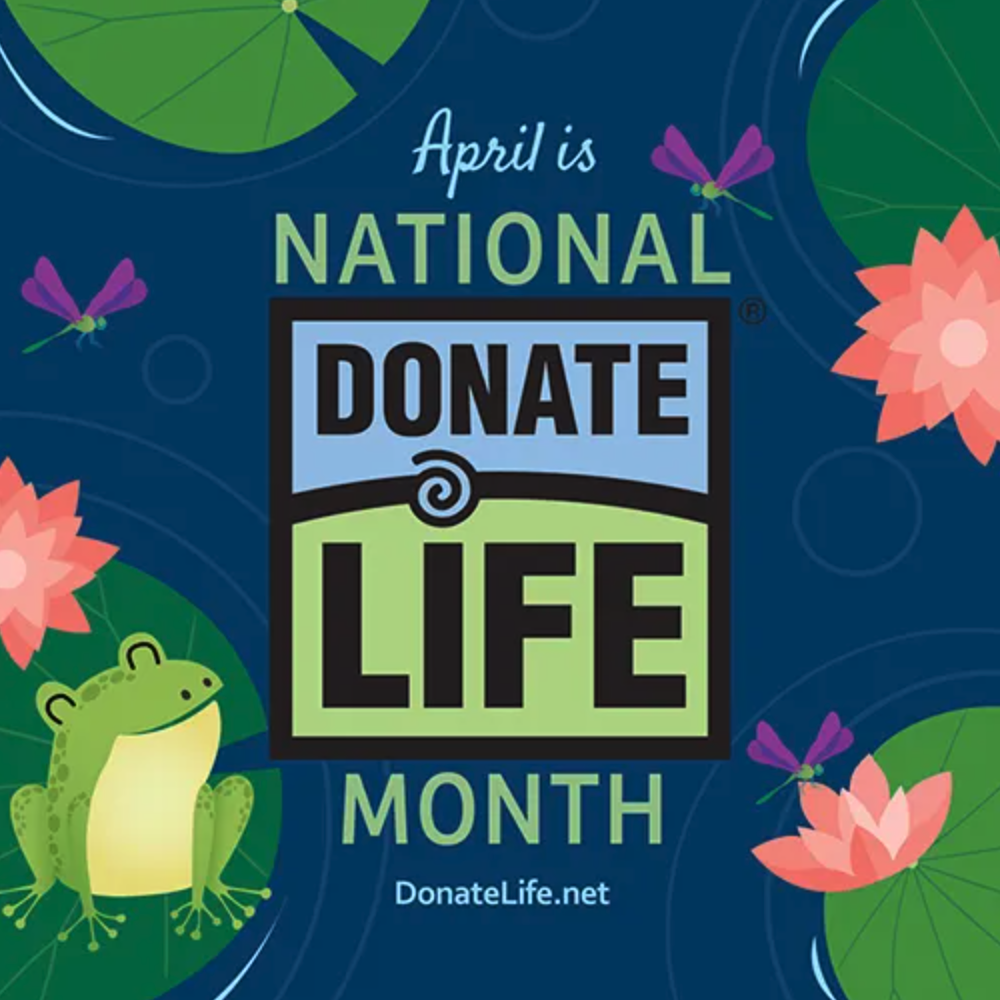This April, we celebrate National Donate Life Month (NDLM). Organ donation is the act of giving one's organs or tissues to save or improve the lives of others. Despite the advances in medical science and technology, the demand for organ transplantation exceeds the available supply, resulting in long waiting lists and many needless deaths. By becoming an organ donor, you can make a significant impact on the lives of others and leave a lasting legacy.
National Donate Life Month (NDLM) was established by Donate Life America and its partnering organizations in 2003. Observed in April each year, National Donate Life Month helps raise awareness about donation, encourage Americans to register as organ, eye and tissue donors and to honor those that have saved lives through the gift of donation.
Saving lives
Organ donation saves lives. The organs that are donated can be transplanted into individuals who suffer from organ failure or damage. Some organs that can be donated include the heart, lungs, liver, kidneys, pancreas, and intestines. These organs can make a significant difference in the lives of those who need them, allowing them to live longer, healthier lives.
Addressing the organ shortage
There is a significant shortage of organs available for transplant. According to the National Kidney Foundation, there are currently over 100,000 individuals on the waiting list for an organ transplant. Sadly, due to the shortage, many people die before they can receive a transplant. Organ donation is a way to address this shortage and provide hope to those who are waiting for a life-saving transplant.
Improving quality of life
Organ donation not only saves lives but also improves the quality of life for those who receive transplants. For example, a kidney transplant can allow a person with kidney disease to live a life free from dialysis treatments, which can be time-consuming and exhausting. Similarly, a heart transplant can allow a person with heart disease to regain their mobility and return to a more active lifestyle.
Honoring the wishes of donors
Organ donation is a way to honor the wishes of those who have passed away. Many individuals choose to donate their organs as a way to leave a lasting legacy and help others. By donating their organs, they can make a significant impact on the lives of others, even after they have passed away.
Supporting medical research
Organ donation also supports medical research. Donated organs and tissues can be used in research to help advance medical science and develop new treatments for diseases. This research can help improve the lives of countless individuals, even those who are not directly impacted by organ transplantation.

Top 5 Frequently Asked Questions about Organ Donation
Does registering as a donor change my patient care?
No, your life always comes first. Doctors work hard to save every patient’s life, but sometimes there is a complete and irreversible loss of brain function. The patient is declared clinically and legally dead. Only then is donation an option.
Does donation affect funeral plans?
Funeral arrangements of your choice are possible, including a viewing. Through the entire donation process the body is treated with care and respect. Following donation, funeral arrangements can continue as planned.

Does my religion support organ, eye and tissue donation?
All major religions support donation as a final act of compassion and generosity.
Does my social and/or financial status play any part in whether or not I will receive an organ if I ever need one?
No. A national system matches available organs from the donor with people on the waiting list based on blood type, body size, how sick they are, donor distance, tissue type and time on the list. Race, gender, income, celebrity and social status, sexual orientation, gender identity or expression does NOT prevent someone from registering as an organ donor.
Why Register to be a Donor?
One donor can save up to 8 lives, restore sight to 2 people through cornea donation, and heal more than 75 lives through tissue donation. Register to be an organ, eye and tissue donor
This April let's remember that organ donation is crucial because it saves lives, addresses the organ shortage, improves the quality of life for recipients, honors the wishes of donors, and supports medical research. By becoming an organ donor, you can make a significant impact on the lives of others and leave a lasting legacy. It is essential to increase awareness and participation in organ donation to ensure that more individuals can benefit from this life-saving practice.


